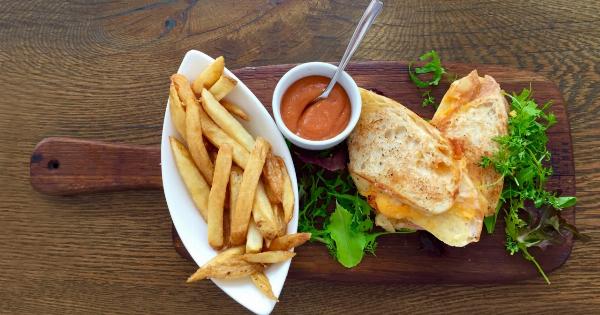There is a common belief that consuming junk food leads to the development of cellulite. However, this notion is not entirely accurate.
While eating a diet high in processed foods and saturated fats can contribute to overall weight gain, there is no direct evidence to suggest that specific foods directly cause or worsen cellulite.
Myth #2: Drinking Coffee Increases Cellulite
Another persistent myth is that drinking coffee or caffeinated beverages can increase the appearance of cellulite. The truth is, there is no scientific evidence to support this claim.
While caffeine can temporarily cause fluid retention, which may make cellulite more noticeable, it does not cause the condition itself.
Myth #3: Sugar Aggravates Cellulite
While excessive sugar consumption can lead to weight gain, there is no direct link between sugar and cellulite. Cellulite is a complex condition influenced by factors such as genetics, hormones, and lifestyle habits.
Eating the occasional sugary treat is unlikely to worsen cellulite.
Myth #4: Detox Diets Eliminate Cellulite
Detox diets often claim to eliminate toxins from the body and reduce cellulite. However, these claims are not backed by scientific evidence. The body has its built-in detoxification system through organs like the liver and kidneys.
A balanced diet and regular exercise are more effective strategies for managing cellulite.
Myth #5: Drinking Water Reduces Cellulite
While staying hydrated is essential for overall health, there is no direct evidence to suggest that drinking water alone can reduce cellulite. Proper hydration can help maintain healthy skin, but it cannot eliminate the underlying causes of cellulite.
Myth #6: Cutting Out Carbs Helps Get Rid of Cellulite
Eliminating carbohydrates from your diet may lead to weight loss, but it will not specifically target or eliminate cellulite. Carbohydrates are an essential macronutrient that provides energy for the body.
A balanced diet that includes whole grains, fruits, and vegetables is important for overall health, but it will not cure cellulite.
Myth #7: Eating Proteins Reduces Cellulite
While consuming an adequate amount of protein is important for maintaining muscle mass and promoting overall wellbeing, it does not directly affect cellulite.
Protein-rich foods can support muscle growth and repair, but they cannot eliminate the dimpled appearance of cellulite.
Myth #8: Alcohol Worsens Cellulite
Alcohol can have various negative effects on the body, including contributing to weight gain and fluid retention. However, there is no concrete evidence to suggest that alcohol consumption directly worsens cellulite.
Nonetheless, excessive alcohol intake can harm overall health and may indirectly affect cellulite through its impact on weight and wellbeing.
Myth #9: Specific Superfoods Cure Cellulite
There is no magical superfood that can cure cellulite. While certain foods rich in antioxidants, vitamins, and minerals can support healthy skin and overall well-being, they cannot eliminate cellulite on their own.
A well-rounded diet with a variety of nutrient-dense foods is crucial for overall health, but it will not completely erase cellulite.
Myth #10: Supplements Eliminate Cellulite
A wide range of supplements on the market claim to reduce or eliminate cellulite. However, most of these claims are not backed by scientific evidence.
Dietary supplements may contain various ingredients, but there is no guarantee that they will specifically target cellulite. The most reliable approach to managing cellulite is through a combination of healthy lifestyle habits, including exercise and a balanced diet.




























